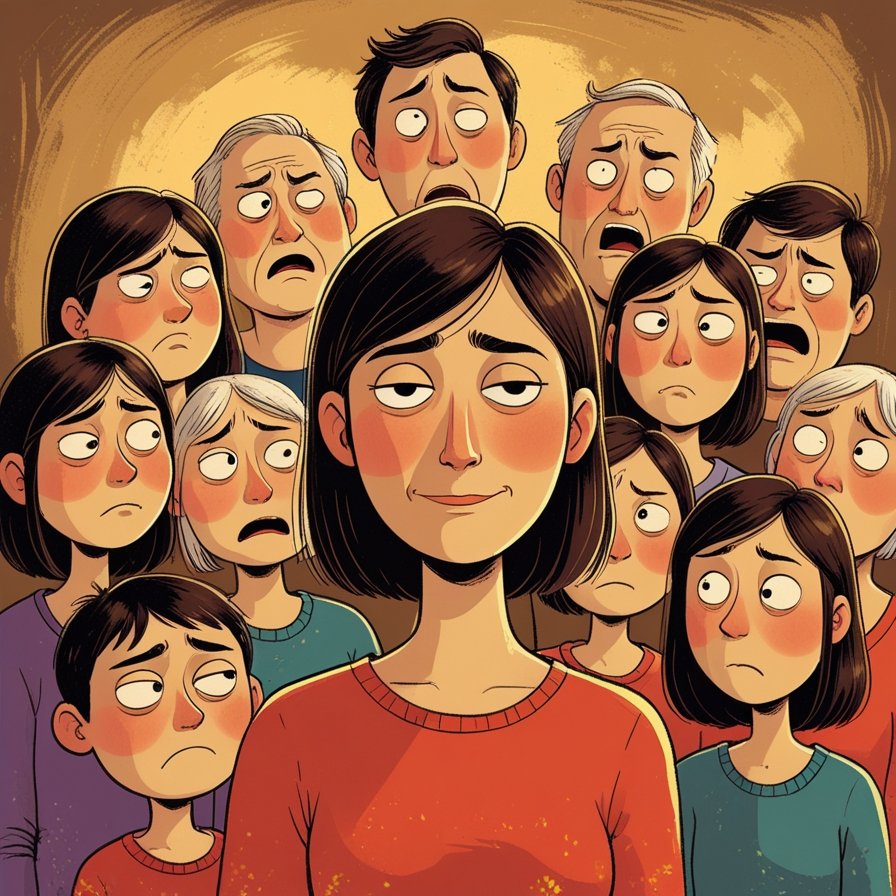When everyone hates your partner, you’re in the middle of an emotional tug-of-war that science says you’ll probably lose.
Let’s cut through the BS: that gut-wrenching feeling when your parents or friends disapprove of your romantic partner isn’t just annoying—it’s neurologically painful. Your brain processes this rejection similarly to physical pain, which explains why it feels so damn awful when your mom gives your new boyfriend that look.
Your Relationship vs. The World: A Battle You Didn’t Sign Up For
Research consistently shows that the old “Romeo and Juliet effect”—where opposition makes love stronger—is mostly romantic garbage. The truth? Relationships facing consistent disapproval from close social circles are significantly more likely to fail. This isn’t because you’re weak-willed; it’s because humans are fundamentally wired for belonging.
When your social circle rejects your partner, they’re triggering emotional bytes loaded with primal belonging needs. These bytes contain physical sensations (that sick feeling in your stomach), emotional charge (anxiety), and narratives (“I have to choose between people I love”). Your brain is literally caught between two fundamental needs: autonomy in choosing your partner and belonging to your tribe.
What’s particularly nasty is how this disapproval erodes relationships. It’s rarely one dramatic confrontation—it’s the slow drip of subtle criticism, the lack of enthusiastic questions about your partner, the way your friends mysteriously become “busy” when you want to bring them along. These create emotional frames through which you start viewing your relationship, unconsciously scanning for problems that confirm your loved ones’ concerns.
The Identity Tax No One Talks About
For people from marginalized communities or cross-cultural relationships, this gets exponentially worse. When family disapproves of your partner based on race, religion, or sexual orientation, they’re not just rejecting a relationship—they’re rejecting a core part of your identity.
This creates a particularly toxic emotional script where defending your relationship becomes defending your very self. Your emotional processing systems become overwhelmed trying to reconcile conflicting needs for family approval and authentic self-expression.
The most insidious part? Even if you stay together, research shows the relationship quality often suffers. You develop hypervigilance, becoming overly sensitive to any evidence that might confirm your family’s concerns. Your emotional frames become contaminated with doubt, and your partner senses it, creating distance neither of you fully understand.
Breaking the Invisible Chains
So what actually works? First, recognize the emotional bytes at play. That sick feeling when your mom criticizes your partner isn’t just discomfort—it’s your system processing conflicting attachment needs. Name these emotions specifically: disappointment, guilt, anger, confusion. This emotional granularity transforms overwhelming feelings into manageable experiences.
Second, stop trying to convince everyone. Seriously. Studies show that defensiveness actually reinforces others’ negative perceptions. Instead, set clear boundaries: “I hear your concerns, but I need you to respect my choice even if you disagree.” Then maintain those boundaries consistently.
Third, honestly assess the situation with someone neutral. Sometimes—and this is hard to swallow—our loved ones spot red flags we’re missing. A therapist can help you distinguish between legitimate concerns and family dynamics playing out on your relationship stage.
The most powerful indicator? How your partner responds to the disapproval. Do they encourage isolation from your family, or do they show compassion for your difficult position? Their reaction reveals volumes about whether they’re part of the solution or compounding the problem.
_Your relationship doesn’t need universal approval, but it does need enough oxygen to survive._
Still wondering if I’m right? Just look at who’s still sitting across from you at breakfast five years from now.
– Sophia Rivera, who chose the “wrong” partner according to everyone except herself (we’re celebrating 22 years this fall)

